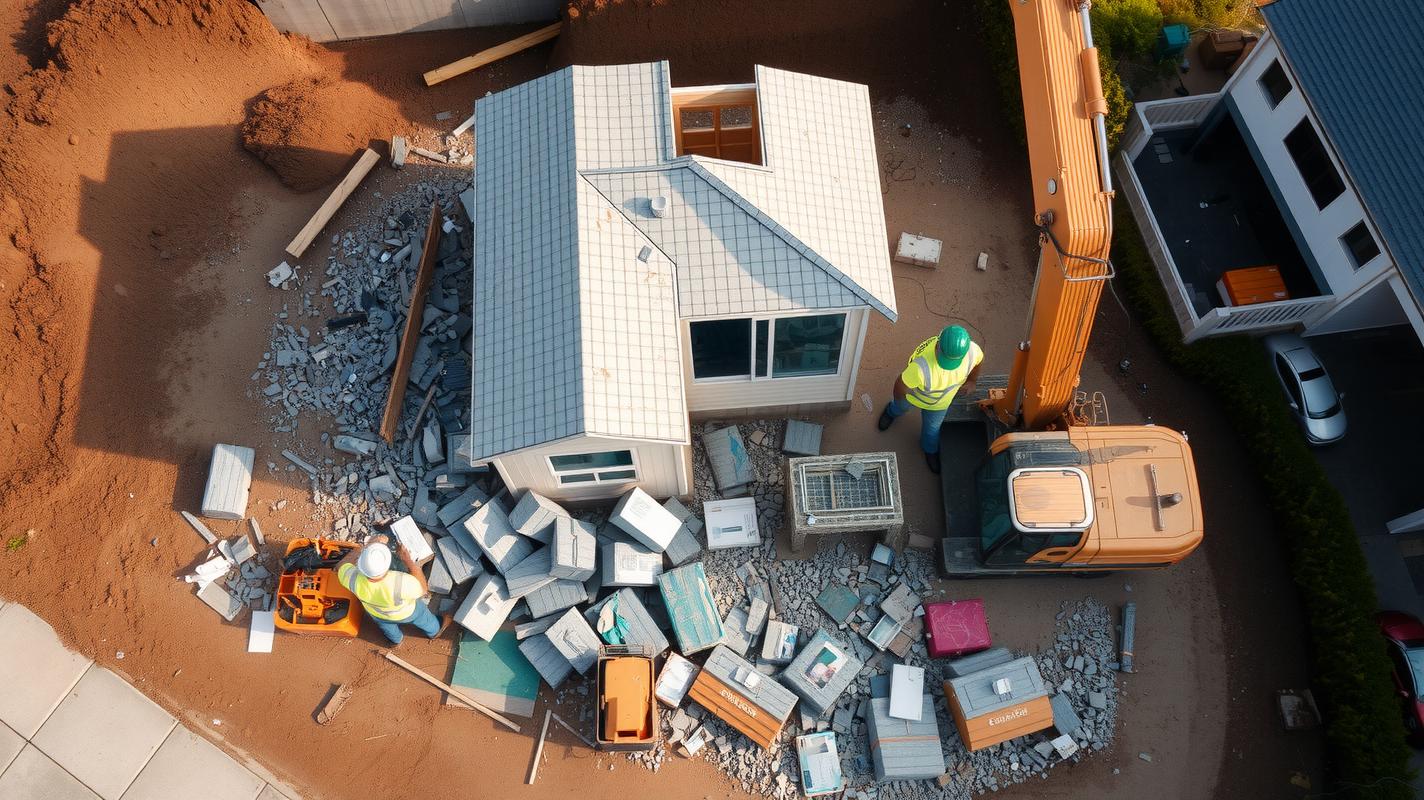The demolition of structures, particularly in residential areas, often brings about concerns, curiosity, and sometimes even resentment within local communities. Incorporating the community into the process of demolition planning and execution is vital. This article will focus on strategies to involve local communities in residential demolition, house demolition, and cooperation with the community during demolition planning and execution.
![Demolition of 2-storey House [4]](https://www.goneandcleandemolition.com.au/wp-content/uploads/2025/07/Demolition-of-2-storey-House-4-1024x578.jpeg)
Importance of Community Engagement in Demolition Planning and Execution
Demolition planning involves meticulous steps, and when it comes to residential demolition or house demolition, the stakes are even higher. Local communities’ concerns and interests must be taken into account. By fostering transparency and cooperation, it becomes possible to create a win-win situation for both the demolition company and the community.
We are experienced Demolition Company based in Melbourne, Victoria that offer top-tier demolition services all around Melbourne and across Victoria, Australia.
For all your Demolition needs contact us to GET FREE QUOTE NOW!
Strategies for Involvement
- Open Communication Channels: Begin with a clear line of communication with the community. Regular updates about demolition planning, execution, and possible disruptions to everyday life can alleviate concerns.
- Community Meetings: Hosting public meetings provides a platform for residents to voice their concerns and questions about the demolition of houses. These meetings build trust and allow for the modification of plans based on community input.
- Cooperation with Community Leaders: Collaboration with local community leaders ensures a smoother process. They can provide valuable insights into community needs and preferences, and facilitate cooperation during demolition planning and execution.
- Transparency in Plans and Regulations: Make all relevant documents accessible. Be transparent about safety measures, regulatory compliance, schedules, and any other concerns related to demolition planning.
- Environmental Consideration: Communicate the measures being taken to minimize environmental impacts. Many communities will appreciate knowing that residential demolition is being handled responsibly.
- Offer Employment Opportunities: Whenever possible, involve local community members in the demolition process. This fosters a sense of ownership and connection to the project.
- Post-Demolition Community Involvement: Include the community in the post-demolition process. Whether the land will be turned into a park, commercial space, or other residential structures, local input should be considered.
Conclusion
Demolition planning and execution doesn’t have to be a process that creates tension within a community. By implementing open communication, transparency, and cooperation with the community during demolition planning and execution, the process can become more inclusive and accepted.
In the context of residential demolition or house demolition, these principles are even more critical. The strategies outlined above ensure that everyone’s voice is heard, and the demolition of houses becomes a project that the entire community can stand behind.
If you’re involved in a demolition project and want to foster better relationships within the local community, these strategies can serve as a valuable guide. The result will be a process that respects the community’s concerns and integrates their input, making for a more successful and harmonious demolition project.

